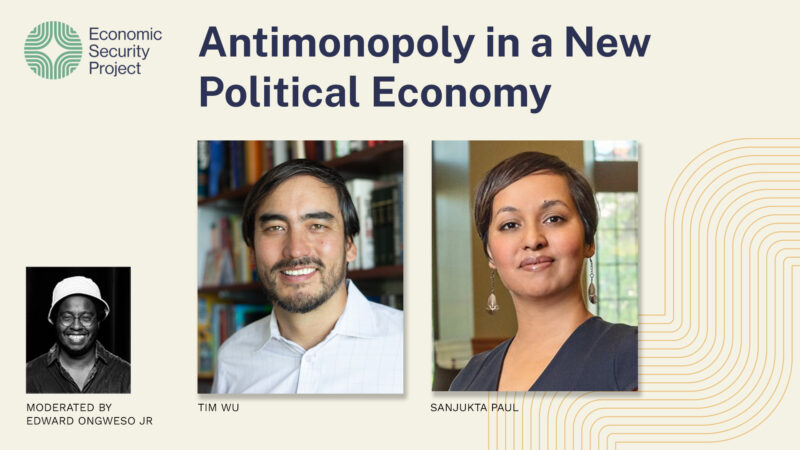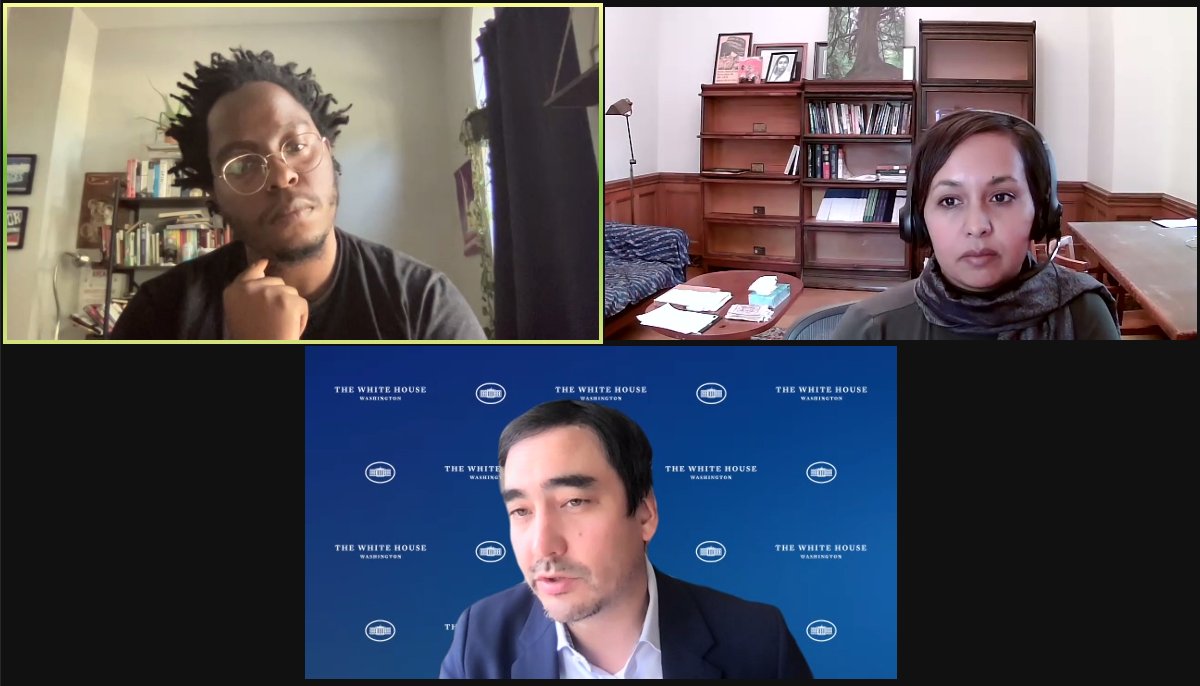Event
Event Highlights: Antimonopoly in a New Political Economy
10. 11. 2022
How can we apply the theoretical lessons and commitments of the antimonopoly project as we move toward policy?

In recent decades, the dominant economic framework has favored the concentration of economic power in the hands of a few people at the expense of everyday people. Today,we’re on the precipice of a new economic paradigm that overturns the dominant neoliberal framework that has idealized free markets and led to the exploitation of workers, limited opportunities for small businesses and reduced options for consumers. In its stead is an acknowledgment and willingness to embrace public power’s role in structuring markets that work for everyone.
“We are in one of these almost constitutional moments for antitrust…we’re clearly in a moment where the very foundations are being rethought, where the neoliberal assumptions of the last 40 years are being thrown into question.”
– Tim Wu, White House Special Assistant for Technology and Competition Policy
As Tim Wu, White House Special Assistant for Technology and Competition Policy, declared at an event we co-hosted with the Law & Political Economy Project on October 12th, “we are in one of these almost constitutional moments for antitrust…we’re clearly in a moment where the very foundations are being rethought, where the neoliberal assumptions of the last 40 years are being thrown into question. President Biden is firmly devoted to trying to turn the ship around.”
This moment is in large part thanks to the critiques that scholars like Wu and Sanjukta Paul, University of Michigan law professor, have been making for years—critiques that have led us to this opportunity to take a step back and interrogate the values that should guide our approach to regulating markets. Their work, along with many of our academic grantees’, has been pivotal to informing and building momentum for policy change that starts to redistribute power and rebalance our economy.
One of the richest areas where this deep exploration is happening is around the idea of fair competition. “This is really important to think about why we would be talking about fair competition, and not just competitive markets and more competition, although that may also be an important policy goal,” as Professor Paul summed up, “If we can take a step back and think about how we are conceptualizing what the goals of antitrust are [and] what the statutory scheme is, …we come to a different vision of what we’re doing.”
So much of this moment, too, is a testament to the empirical evidence that has shown the perils and harms of concentration across our economy. The evidence has spurred our political leaders to act. “One reason I think the White House and the President have wanted to have a greater presidential role,” as Wu opined, “is an acute awareness that something like the concentration of key industries or lack of competition in a big industry … has enormous effects for the entire economy in a manner that is very difficult to see from a case-by-case [basis].
“There’s been a major blind spot in the antitrust laws. It’s almost a macro or broader view of the consequences of all these sorts of micro decisions. And all these small analytical types of calculations on the big question of where the spoils of the economy are going. What is the distribution of wealth like? What kind of equality or inequality do we have? And how does this contribute or not contribute to democratic governance?
“The key question of getting these analytical doctrines right or refocusing on what we think fair competition really means is the instrument of the rebalancing that we’re talking about.”
The innovative ideas coming out of academic scholarship have important implications for how we translate and apply this research in policy development and broader lessons that can guide meaningful enforcement. As Professor Paul said, “there is a real link…between the potential policy and litigation action that we’ll see and the intellectual contestation that we’re seeing.”
As we build toward a post-neoliberal, multiracial democracy, academic research on antimonopoly issues will play a critical role in informing our future.
